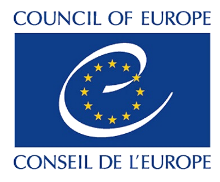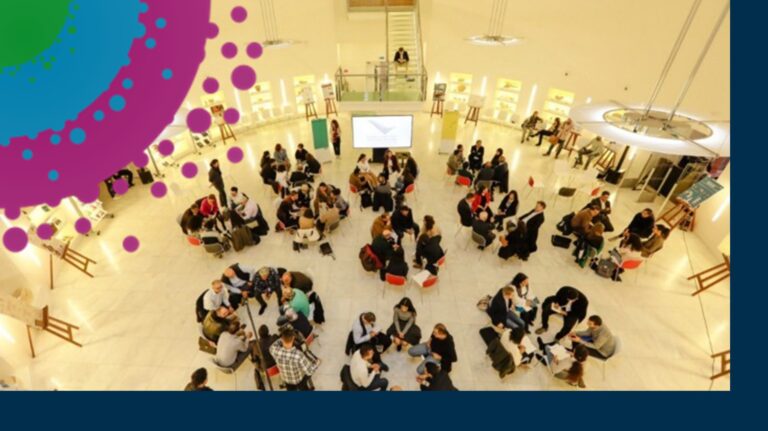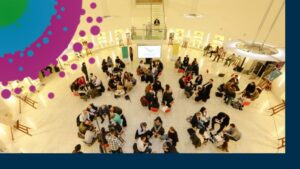Current status
Validated
Discover more
After a contribution is submitted to BePART Forum, the initiative is marked as “Submitted”; as other partners involved in the initiative submit information from their side, the initiative is marked as “Under review” and goes through the validation process; twice a year, initiatives are validated by the BePART Working Group at the Council of Europe. Successful initiatives are marked as “Validated”. Do you want to learn more – click here
Contributor(s)
First contributor: Örnsköldsviks Municpality Sweden
Partner contributor: Bygdsam
Summary
The initiatives’ goal is to strengthen the local democracy in a sustainable way, and to promote contact and interaction between politicians, public officials, and citizens, for enabling the possibilities for exchange, cooperation, and mutual building of our society. The desired effect of this model is to create a movement and active participation in the local community for an increased trust and legitimacy for the representative democracy and to form a joint platform where we together tackle the challenges for the development at the municipality level. We use citizen dialogue as a collective term for all types of meetings between citizens and the political organization that have a purpose to increase the political conversation regardless of which method is used and what level it is on.
Administrative level
Local (Within the administrative boundaries of Ornskoldsvik municipality)
Year of implementation
2020
Policy area(s)
- General Affairs
- Agriculture, stock-raising, fisheries
- Civil Protection
- (Local) Development and Planning
- Education, culture, and sport
- Youth
- Employment
- Environment
- Public Finances
- Public Ethics
- Public Health
- Social security/solidarity
- Transport
Sorry, no records were found. Please adjust your search criteria and try again.
Sorry, unable to load the Maps API.
Bygdsam
Civil society organisation
Contact info
https://www.ornskoldsvik.se/bygdsam
Tipology of involvement in the initiative
- Initiating (i.e., advocating for and starting the process)
- Organising
- Funding
- Participating with a direct involvement
- Indirectly impacted by the process
Örnsköldsviks Municpality Sweden
Public Authority
Contact info
Tipology of involvement in the initiative
- Initiating (i.e., advocating for and starting the process)
- Organising
- Funding
- Participating with a direct involvement
- Indirectly impacted by the process
Level of Participation
- Information
- Consultation
- Dialogue
- Partnership
Complementary information provided by the Agency for the Prevention of Corruption and Coordination of the Fight against Corruption
- Partnership
Discover more
By level of participation we refer to the type of involvement in the decision-making process. The levels are identified by the intensity of participation: going from “information” to “consultation” to ” dialogue” to “partnership”. Do you want to learn more – click here
Developed practice(s)
Depending on the subject matter, different levels of participation are chosen.
Step(s) of the political decision-making process at which the practice was implemented
- Inputs/Incentive ideas for policy
- Agenda Setting of policy
Complementary information provided by the Agency for the Prevention of Corruption and Coordination of the Fight against Corruption
- Agenda Setting of policy
- Implementation of policy
Discover more
There are six different steps of the political decision-making process: agenda setting, drafting of policy, decision-making, implementation of policy, monitoring and reformulation of policy. Each step offer opportunities for CSOs and public authorities to interact. Do you want to learn more – click here
How the initiative was implemented
Situation
Based on the challenges of representative democracy, something needs to be done to restore confidence in the democratic system. The societal development that has taken place towards the individual society, populism, and the lack of legitimacy for politicians, is largely based on recent technological developments and that one can reach many and be anonymous on the internet. By increasing the closeness between politicians, public officials and citizens, the opportunity is created together to increase knowledge and understanding of each other, and the life situation people are in and what societal challenges we face. By exploring our societal challenges together, we also believe that we will be able to more easily find solutions and ways to create sustainable change together. The initiative is created through conversation and dialogue when elected representatives, public officials and citizens together explore society’s challenges and formulate common solutions.
The initiative is aiming to realize the Örnsköldsvik municipality vision “We build best together”. We use the term citizen dialogue in this initiative as a collective term for all types of meetings between citizens and the political organization that have a purpose to increase the political conversation regardless of which method is used and what level (consultation, dialogue both broad and collaborative, and partnership). The initiative for citizen dialogue can be taken from politicians and public officials. But initiatives can also address from individual citizens, groups of citizens or CSOs who, on their own initiative, pursue issues that may be the subject of a citizen dialogue process. The political organization is dependent on an influx of, for example, citizens to create a broader anchoring, a tolerance and, above all, a sustainability in the decisions to be made. For this interaction to take place, a responsive municipality is required that is active and prepared to raise even complicated, complex, and conflict-filled issues that different actors shed light on or discover together. In the work with citizens participation there is a division of responsibilities, and the municipality does not have the role as a one-way giver that collects wish lists and then serves a smorgasbord of measures and initiatives. The whole point of this work is to highlight the common commitment and responsibility that exists to achieve a societal change. Even though the municipality will always be the legally responsible for decisions made, the anchoring and the way to a decision for a change is something that is best done by us working together with the civil society, NGOs and CSOs.
Activities performed
In the dialogues the actors handle issues that span over a large area and at all different levels. To have a clearer focus on each matter of concern and to ensure that the “right” participants are included there is a model for categorize the issues into simple, complicated, complex, and urgent issues. Depending on the level of an issue, different methods are required to handle and meet the issue. It is important in each meeting to be prepared to re-evaluate the level of the issue and to be prepared to reformulate and lay out a new plan for solving or continued work with the matter of concern. Here is a short explanation on the different levels of issues.
- Simple questions – Simple questions are ones that you can find simple solutions to and that there are often clear routines, laws, and guidelines to relate to. These are often questioning that are close to one and affect one’s everyday life and by being helped or that clear information is shared, it can be answered and remedied. Example: Desires for things you want to exist to facilitate your everyday life or benefit your interests such as outdoor gym, art decoration, outdoor lighting, etc.
- Complicated issues – In the case of complicated issues, more knowledge and facts about the issue may be required and more may need to be involved. Several linear problems that can be handled logically step by step with evidence and proven experience. Expert knowledge is used and should be used. Results can usually be measured and made visible. Example: When the municipality becomes an intermediary between actors, when demands are made on volunteers to solve assignments, when requests go against decisions made, when several budget areas and laws clash with each other.
- Complex issues – In connection with complex issues there are always tense, either latent or already visible that should not be underestimated. Complex issues require long-term work and cannot be solved at once and with one activity, but a process is required where you together try to understand and learn about the problem to find ways and possible solutions to move forward. Dynamic – constant change. Non-linear relationships – difficult to define other than snapshots. Knowledge needs to be created together between actors. Many parts that are interdependent – visible and invisible. Cannot be solved once and for all. Examples: Integration, security, economy, vulnerability such as abuse and poverty.
- Urgent issues – Urgent issues are when there are rapid and major changes in a society or within a group that effects on several levels. An urgent issue does not have to be only about negative issues, although it will most likely do so. A type of positive but perhaps urgent issue could be a large establishment of a company, which requires some knowledge and that a lot of people need to move to the municipality. Measures after an accident, for example the school fire in Kopmanholmen. When it comes to urgent issues, it is in the first step at the employee level to deal with.
Tools and mechanisms applied
- In the work with the initiative on citizens dialogue, different methods are used to create creative meetings based on conversation and participation. In all meetings, there is a facilitator / process leader who does not participate in the discussions but structures and leads the meeting and are responsible for the documentations and conclusions.
- The methods, in short, are all based on a joint dialogue with those that are affected or have an interest in the specific issue. The dialogues can be held at different facilities, and in different format. It can be an “walk-and-talk” in an environment that is of importance for the matter of concern. It can be at an entrepreneur’s facility, or it could take place in a community hall. The municipality committees are also a form of citizens dialogues. So are the partnerships and cooperation in different areas. One method that are applicable to complex issues is a method called “360 degrees”. This method is useful when there are many actors with different perspectives. The dialogues start with collecting all actors’ perspectives and then a joint citizen’s dialogue take place.
- This method is crucial to ensure good legislation and minimize the collateral negative side effects. All actors have the same possibility to contribute with valuable perspectives and each perspective have the same value. Other tools and mechanisms are an easy and open access to information. The different dialogues are published in local newspapers, on the municipality’s website, and in newsletters. When applicable will other forms of methods be used as well. Such as partnership, consultation, research, petitioning and different forums. The methods, tools and mechanisms are all in place and the matter of concern or the specific issue will determine what structure that is applicable.
Goals of the civil participation initiative
At community level
To build a solid trust and individuals’ individual and collective ability to take responsibility for making visible and contributing solutions to society’s needs and challenges. Citizens participate based on their abilities and interests and have an important role in contributing to the building of society.
From Civil society organisation’s perspective
NGO/CSO´s have an important role for the municipality to be an open, democratic, transparent, and accountable. The contribution of organised civil society where their skills and knowledge are recognized as an asset and the dialogues have a clear and visible impact on decisions and services will improve the development within the different NGO/CSO´s. This initiative is aiming for to strengthening the NGO/CSO´s advocacy, awareness, and expertise role.
From Public Authority’s Perspective
Politicians always have a dual role, partly as representatives of their political party and its ideological line.
The second is as an elected representative with an assignment in a committee or municipal council. They represent and as elected representatives and representatives of the citizens, as well as a representative of the position of trust entrusted to them. In the work with citizen dialogue in this initiative the elected representatives participate as a representative of the political assignment they have in the committee or municipal council. By increasing the closeness between politicians and, citizens and civil society organizations, the opportunity is open for a mutual understanding and increased knowledge of each other, and the life situation people are in and what societal challenges we face.
Results expected prior to the implementation
The effect we want to achieve with the model is to, by creating a movement and active participation in the local community, gain increased trust and legitimacy for representative democracy and to form a common platform where we together meet society’s challenges.
Immediate results achieved after implementation
An increased contact, and enlarged amount of way for contacts, between the political, public officials, and civil society levels within the community.
Long-term impact
To increase the democratic dialogue in the long term and strengthen confidence in representative democracy, which is based on mutual trust between the politically controlled organization and the citizens.
Practice lessons learnt (obstacles and solutions)
| Agency (i.e., political conditions/power structures) | Obstacles | / |
| Solutions | / | |
| Legislative | Obstacles | / |
| Solutions | / | |
| Administrative | Obstacles | / |
| Solutions | / | |
| Socio-cultural | Obstacles | / |
| Solutions | / | |
| Economic | Obstacles | / |
| Solutions | / | |
| Human capital | Obstacles | / |
| Solutions | / | |
| Other | Obstacles | / |
| Solutions | / |
Self-assessment
The self-assessment presents the opinion of the contributor about on what extent the following principles for Civil Participation have been reflected in the implementation of the initiative/practice/case-study, ranging from 1 (min) to 4 (max) (N/A: not applicable, do not know)
| Openness | 3 |
| Explanation | This initiative was launched during the autumn 2020 and therefore the lessons learned, evaluation and experience can´t be validated for the moment. As the initiative continues, we will update the information. |
| Trust | 3 |
| Explanation | In this initiative the NGO /CSO are essential for the dialogues to happen. The model for dialogues with local citizens is based on, consultation, dialogue, participation, and partnership. The subject for each dialogue is always well presented, well recognized, clearly formulated, and transparent. Each dialogue has a clear structure for participation without discrimination and open for scrutiny from all participants. |
| Independence | 3 |
| Explanation | The initiative is aiming for increasing the trust between actors and sectors. To share the work to improve the lives of the people in the community will have the impact to create a broader anchoring, a tolerance and above all a sustainability in the decisions made that will strengthening the local, and the representative, democracy. |
| Participation | 3 |
| Explanation | NGO/CSO are protected by the law to be independent and have the right to advocate their position as they wish. All NGO /CSO are equal and have the same rights to participate, to cooperate, to coordinate in any way they have interests. Even when achieving funding from the municipality the NGO/CSO are fully independent and are not controlled by the local governance in any ways. |
| Transparency | 3 |
| Explanation | NGO/CSO have the right to participation in the initiative by active participation in the local citizen’s dialogue, in consultations, partnership and in other methods applicable. The participations in necessary for gain increased trust and legitimacy for representative democracy and to form a common platform where we together meet the challenges of society. Every NGO /CSO are treated equal and without discrimination and all necessary measures to enable the possibility to participate are within the structure of the initiative. If NGO/CSO does not participate each actor have the right to partake the agenda, the process, and the outcome of the dialogues. |
| Accessibility | 3 |
| Explanation | When a dialogue will take place the aim, structure, time, and dates are presented in different official channels. NGO/CSO, partners, entrepreneurs, and agencies in the area or with an interest in the subject are specially invited and pre-meetings are held when applicable. The outcome of the dialogue is documented, and public officials presented in such way the involved actor’s preferences and in a way that is suitable for all citizens to access. |
| Non-discrimination | 3 |
| Explanation | All actors involved in a citizen dialogue will use a clear language and use appropriate means for facilitate participation and access to documentation. When needed the documentation, and the related information, is transcribed, translated, and recorded. The content of the issues, the context of the dialogue and the agreed framework for participation will decide what, and how the dialogue is documented. |
| Inclusiveness | 3 |
| Explanation | The on-going work within the municipality on non-discrimination is applicable to the whole initiative. All municipality committees, forums and councils are involved in the initiative with citizen’s dialogue. There are dedicated public officers with a duty to including and advocacy for the less privileged, the most vulnerable and to assure at all measures and obstacles hindering non-discrimination are avoided. |
| Accountability | 3 |
| Explanation | Affected actors that are involved in citizens dialogues to develop a good society to live and live in through cooperation and partnership. Participating actors can be citizens, civil society, universities, business, and other authorities. Non organized groups are also important in these processes and necessary deeds are taken to include these groups and persons to participate in such an arrangement that suite them best. The municipality committees are forum where groups with special needs have an expert role in their matters of concern. This committees have their own agenda and daily work and when needed they are a part in the citizens dialogues. |
Thank you for wanting to share your experience on the BePART platform!
Learn more about the submission process, or just fill the form below.



